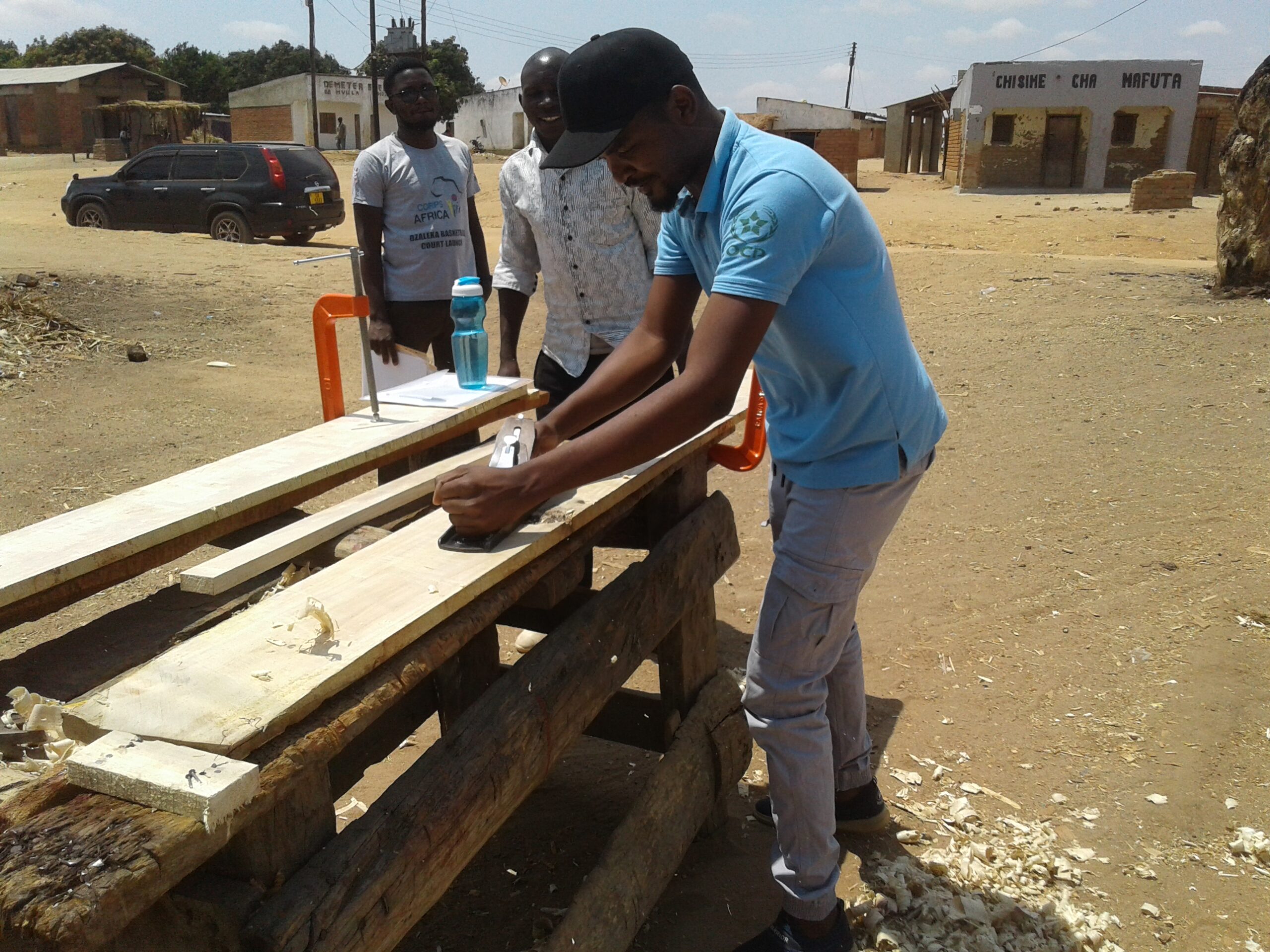
As the community has patriarchal land practices and a heavy reliance on agriculture, Chiukepo found that the community’s women and children were particularly vulnerable to poverty. Chiukepo and the community organized meetings with the Chiefs, the Village Development Committee, Youth and Women Clubs, The Good Hope Thoza CBO, and other community members to brainstorm ideas and create a project to address poverty. Ultimately, the community found it important to focus on a project that would meet the goals of minimizing COVID-19 risks, finding a way to diversify income for those who do not own land, mitigating the aforementioned financial uncertainty due to climate change, and reducing the high unemployment rate of young people.
To accomplish these goals, the community and relevant experts, including the Technical, Entrepreneurial, and Vocational Education and Training Authority (TEVET), came together. Chiukepo, with the aid of local experts, facilitated training for COVID-19 prevention, carpentry, business skills, and environmental management for 12 people (8 male and 4 female), who enthusiastically embraced this project. In his analysis, Chiukepo estimated that the trained youth would earn 100,000 K (USD 124.17) monthly with their new skills and abilities. The 12 direct project beneficiaries bought into the project by providing a cash contribution which paid for food, hiring community sawyers, and buying materials such as glue, notebooks, oil stones, and chisels. They also managed an in-kind contribution from the Thoza Primary School Committee, which provided a building to host the training sessions. The project was also made possible by Mr. Nelson Chiwra, an expert carpenter and community member, who offered carpentry training sessions for free. The community contributed fully to this project with vigor. The community is very proud and believes that the joinery business will help everyone in the community.